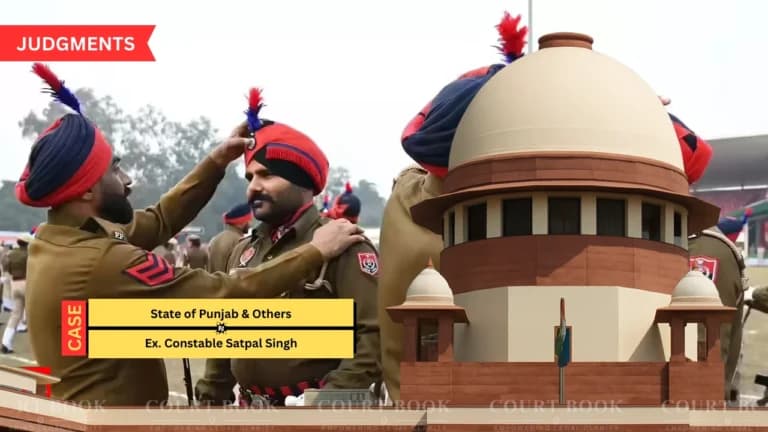The case involved Ex-Constable Satpal Singh, who joined the Punjab Armed Forces in 1989 and was later transferred to the Commando Battalion at Patiala. In 1994, he availed one day’s leave but failed to return, remaining absent from 4 April 1994 to 12 May 1994 (37 days).
A departmental inquiry was initiated, and despite opportunities, Singh did not cross-examine witnesses or produce his defense. Following this, a show-cause notice was issued, but no reply was filed. On 3 May 1996, the disciplinary authority dismissed him from service.
- Singh’s appeal and revision before the police authorities were rejected.
- His civil suit challenging dismissal was dismissed by the trial court in 2003 and upheld by the district court in 2004.
- However, in 2010, the Punjab and Haryana High Court set aside the dismissal, citing violation of Rule 16.2 of the Punjab Police Rules, 1934, and held that past misconduct was wrongly considered without notice.
Read Also:- Supreme Court Upholds Disciplinary Action Against CISF Constable Amar Singh
The State of Punjab challenged this decision in the Supreme Court.
The High Court relied on State of Mysore vs K. Manche Gowda (1964), holding:
“The punishing authority had actively taken into account the past record of the constable while dismissing him, without disclosing it in the show cause notice. This amounted to condemning him unheard.”
It declared the dismissal illegal but denied back wages, since Singh had already forgone that claim.
The Supreme Court disagreed with the High Court and restored the dismissal.
Read Also:- Delhi High Court Orders Release of Family Pension to Widow from Husband’s Death Date
- Gravest Misconduct: “The respondent’s repeated unauthorized absence in a short tenure of less than seven years amounts to gross indiscipline. A single gravest act of misconduct is sufficient to justify dismissal under Rule 16.2(1).”
- Reference to Past Record Not Fatal:
The Court held that mentioning past absences did not make them the basis of dismissal. It only added weight to the punishment for the proven misconduct of 37 days’ absence. - Rule 16.2(1) Interpretation:
The Court clarified that the first part of Rule 16.2(1) applies to gravest misconduct, where dismissal is justified without considering length of service or pension. The second part applies only to cumulative minor misconduct.
The Supreme Court on 29 August 2025 allowed the State’s appeal, set aside the High Court’s order, and upheld Satpal Singh’s dismissal.
“The dismissal was rightly based on a gravest act of misconduct, and the High Court erred in applying the wrong interpretation of Rule 16.2.”
Both parties were directed to bear their own costs.
Case Title: State of Punjab & Others vs. Ex. Constable Satpal Singh
Judgment Date: 29 August 2025
Case Number: Civil Appeal No. 312 of 2012















